How to have a holiday when you have a lifestyle block and how to find an animal babysitter
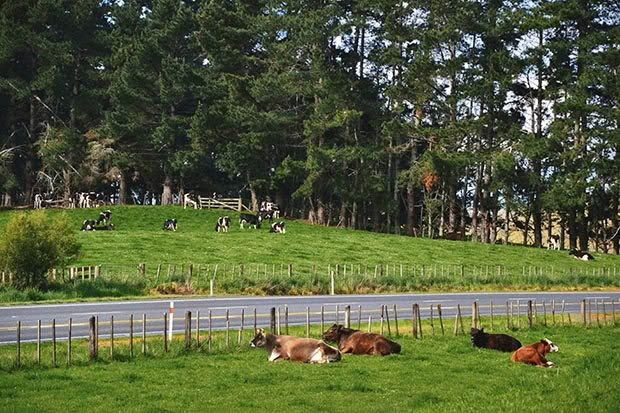
Time your grazing rotation so stock are in paddocks visible to the road and neighbours.
Theoretically we are all living such blessed lives on our rural blocks that we do not need to go anywhere else. But the reality is we need a break beyond our boundaries sometimes, and that means making sure animals, gardens and your home are safe and secure without you.
Words: Sheryn Dean
Sometimes I dream of a 9-5 job, four weeks annual holiday, and a city flat where I just lock the door and walk away. Not for long, but it does flash through my mind as I stock up on chicken food, draw up grazing plans and make long lists while trying to pack.
However, we have designed our block to allow us weekend freedom, and have implemented some other strategies which do make it easier to go away.
CULTIVATE NEIGHBOURLY NETWORKS
It is about this time of year I put invites into my neighbour’s letterboxes. “Bring a drink and a plate and come for a Christmas get-together.” Some never respond, but the ones that have are now valuable friends and I highly recommend the practice. It is networking, rural-style.
Friendship and laughter aside, there is a totally pragmatic side to knowing your neighbours. If you have swapped animal anecdotes over a bottle of wine, you know who to call when there is a strange kunekune in your vege garden. If your goats escape into their orchard, there is a much higher chance they will call you instead of shooting the plundering Houdinis.
If you know your neighbours have gone to Bali, you might think it’s weird when a moving van is uploading all their furniture. If you are going away, you can pay their teenage daughter to feed your cat and chickens.
It’s also peace of mind to know someone with sense who is somewhat familiar with your infrastructure, routines and animals, and is keeping an eye on your house, teenagers, staff and/or animals when you aren’t there. Even house sitters need back-up. How were they supposed to know a sheep coughing wasn’t a sign of imminent ill-health or death?
PROTECT THE MOST ESSENTIAL ELIXIR
Good infrastructure is important, and the water system is the most important of all, especially when you holiday in summer. Ballcocks in water troughs, even for the chickens, ensure access to ample fresh water, until some animal manages to vandalise something, which I am sure is done in spite for being left behind.
This, I can assure you, will be done in an innovative way that has not occurred in the last 364 days when you were home. Ballcocks broken, plugs pulled out, fittings snapped, pipes broken… bored animals have all day to contemplate destruction. As I said, I’m sure it’s spite.

Locks and external latches on boundary gates prevent cattle from playing with the latch and accidentally opening the gate.
Not only are the stock thirsty, but the summer’s water supply just drained away.Having two water tanks, disconnected from each other, means at least you will have one tank of water to come home to. We have one large under-floor tank with a timer on the pump that will switch it off after 30 minutes of continuous use.
Another option is an electronic irrigation controller system which will cost around $700. This is controlled by your smart phone and can be set up with a flow meter to alert you if there is excessive flow. You can use the same electronic system to water your vege garden or nursery while you are away. Raised beds are great, but they dry out faster than the ground and one hot week can be death to your year’s supply of tomatoes.
Cheaper watering options are tap timers that screw onto your hose. Programme for a good soak early every second or third morning, ensure the batteries are good, and set up a couple of weeks before you go away to check they are operating properly and sufficiently.
Nursery trees and pot plants can be set in a tray or bath, raised up on a stand of bricks or upside-down saucepans. Drape an old towel over the stand and fill the base with water so the towel wicks water up to the base of your plant.
SAFE AND SECURE
We don’t have a lot worth stealing, but I’d like to keep what we have. First off, we’ve made sure our yard is visible from the road. Privacy is all well and good but I didn’t want a high fence that would-be burglars could hide behind. Cameras and sensors alert us to anyone who tries to self-serve.
We decided a monitored security system would be useless as the response is at least 20 minutes away, so we installed a really loud alarm that even the neighbours can hear. They phones us or friends if we are out of range. We have a network of neighbours who we can ask to respond, and we do the same for them. This system also has a fixed smoke alarm.
You also need to keep stock in. All our boundary gates are locked with combination locks, and even the smartest, bored and most spiteful cow still hasn’t worked out the number. This, combined with a hot wire on top of the seven-wire boundary fence, may not stop would-be rustlers, but at least it will make their job more difficult.
It is a sad state of affairs when we have to lock our paddocks but we suffered too much rustling when I lived on the East Coast to pretend it doesn’t happen. It’s also why our pig paddock is behind mthe house, neither visible or accessible by road.
SELF-SUFFICIENT ANIMALS
I hate leaving animals unattended but we planned our block carefully so we could escape for weekends. With the neighbours keeping an eye on them, they are ok for a couple of nights.
Planning included making sure everything had ample space, food and shelter. The ducks and guinea fowl free-range in the orchard, with open access to their nesting boxes, a small dam and an old bath for water. The bath has a ballcock so it refills, and a little wooden ramp so they can get out if the water level drops.
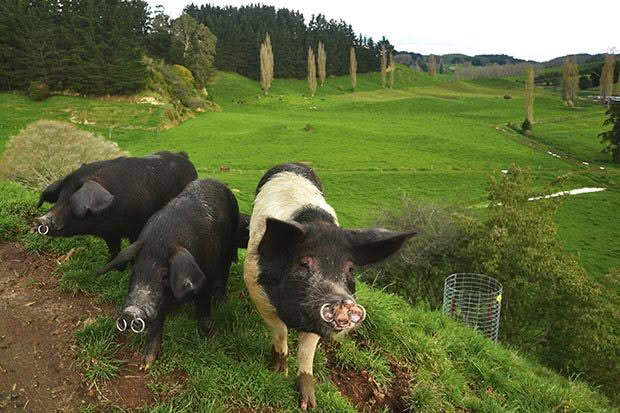
Pigs are quite happy if there is ample grass, and nose rings prevent them from turning the grass into mud.
Chickens also free range, as far as possible from my vege gardens. They happily put themselves to bed each night and automatic feeders supply dinner. The only animals caged are the little Japanese quail whose seed is dispersed by an old cat biscuit feeder.
The pigs free range and have nose rings to stop them turning the grass into mud. We’ve channelled a spring through an old barrel to provide continuous fresh drinking water before it runs into a natural wallow.
We also chose Devon pigs which are black and so well adapted to outdoor life. They theoretically will do well on grass alone but mine insist that this is a fallacy and enjoy their shelters and a daily meal. However, I know they have plenty to graze on to sustain them over a weekend. Cows and sheep are more independent and I have a few paddocks that are highly visible to my neighbours.
It is just a matter of scheduling my grazing routine so they are in there with plenty of feed whenever we are away. The neighbours will notice as they drive past if something is caught in the fence, looking ill or out of water.
The milking cow always has a calf or two share-milking with me, happily keeping her udder empty for a weekend without overdosing on milk. Our entire house section is dog-proof fenced and two Dobermans guard the house and cars while we are away. They have their own kennels, heaps of room to run, a couple of bones to munch on and each other for company. Any would-be burglars would be extra entertainment.
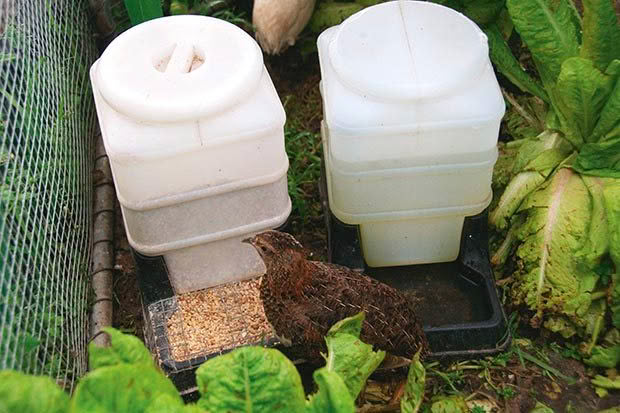
Coturnix quail feed and water are supplied by a modified cat feeder.
These are our normal daily routines so there is no major change if we are scooting off for a weekend. Feeders and waterers are all tried and tested and the animals well used to it all. Everyone gets a good feed and last-minute check on Friday before we leave, and again as soon as we get home on Sunday. The neighbours are told if we going away and will keep an eye out for anything amiss. Weekends are easy, it is longer holidays that need more planning.
4 TIPS TO TAKING ON A BLOCK BABYSITTER
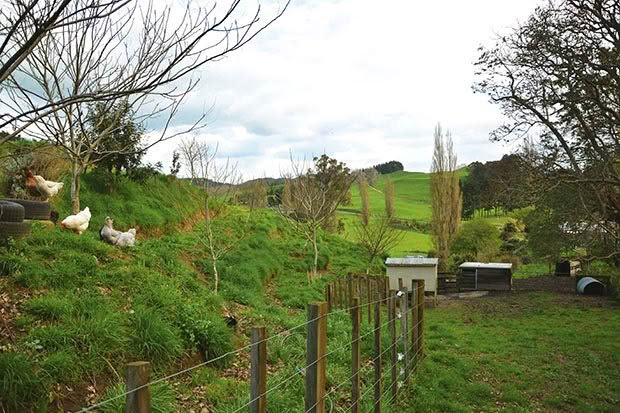
Animals can’t be left for extended periods. They know when you are away, it’s time to get bored, get into mischief and get into trouble. It’s Murphy’s Law. Or spite. This is where house sitters come in.
Friends and family you know and trust are the ideal. Nomadic friends who live in house buses and boats have been wonderful over the years, enjoying a rural break. I enjoy knowing my house and buddies are in safe hands and getting lots of cuddles, and usually way too much feed! Wwoofers have occasionally been left in charge, but I’ve not found this particularly successful for either of us.
I didn’t know them, they don’t know our animals and farming practices, and they have felt isolated and alone, which is not the experience they signed up for. More suited are registered housesitters you can connect with through several websites. No payment is expected but I usually ensure there is lots of food they can help themselves to and some money for emergency animal feed or repairs. Whoever is left in charge will need pretty extensive lists of who and what for every eventuality.
1. Be explicit
My original rule for any animal issues was the housesitter should call the local vet. I would rather pay $80 than have an animal in distress.
But I had to amend that to exclude the ducks, the chickens, and the pet rat. I am not prepared to fork out $80 for a limping duck.
2. Include even the basic things
I found out the hard way that even the (obvious?) watering of the pot plants needed to be on the list.
3. Have a map
Electric fences are a bit like water systems and livestock, seeming to know instinctively when you are gone and acting up accordingly. Trying to explain the intricacies of an electric fence system to a house sitter who has never dealt with one before is a nightmare. Leaving a map of the farm with electric fence and watering systems marked makes it a lot easier for them (or the friend or neighbour they call) to fix a fault.
4. Make a list of numbers
If you are in phone contact you can talk them through any problems, but if you are going to be out of range leave a contact list of friends or family they can call if concerned and mark who is best to ask about animal health, water and fence issues, etc.
16 THINGS HOUSE SITTERS NEED TO KNOW
• The feed schedule for everybody
• The house rules for animals (animals will lie to them about this)
• The watering schedule for gardens and pot plants
• How the pump and water systems work
• What automatic timers are set for what and when
• How to turn the electric fence off
• The codes for locks, alarms, wifi
• How to operate the TV/DVD (for some reason this is unreasonably complicated)
• What fruit and veges they can/should harvest
• Lawnmower operation, extra petrol supplies
•Emergency contacts
• Your itinerary and contact details
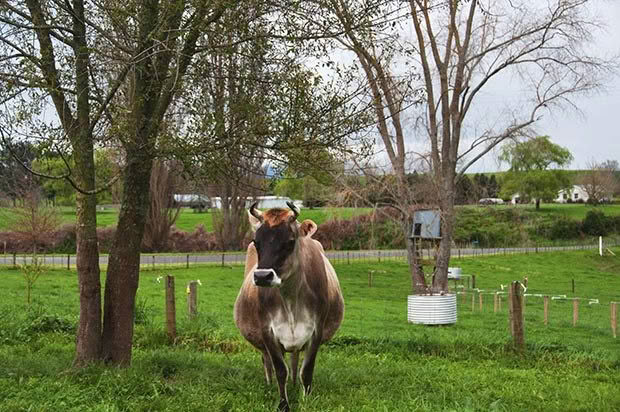
IT NEVER HAPPENS WHEN YOU’RE HOME
The Universe knows when we put the chilly bin in the 4WD and head off because within 48 hours a car crashes through our boundary fence on State Highway One. This shorts out the electric fence which means the cows are on the road or the pigs are on the lawn, or both. Expect the unexpected to happen in your absence.
Love this story? Subscribe now!
 This article first appeared in NZ Lifestyle Block Magazine.
This article first appeared in NZ Lifestyle Block Magazine.
